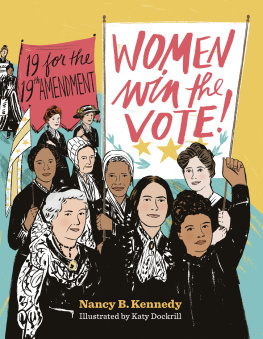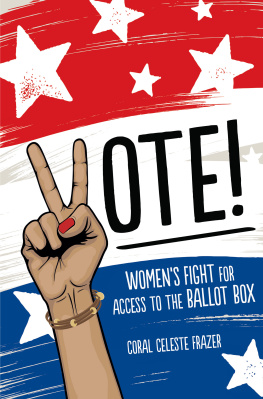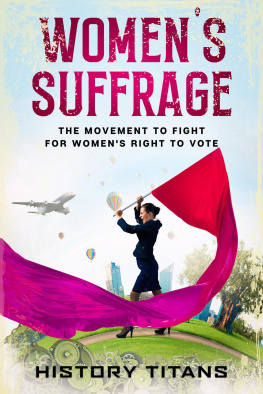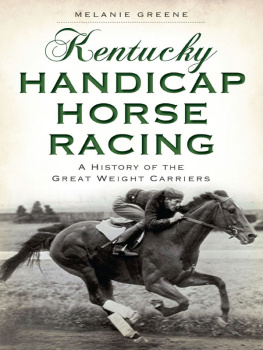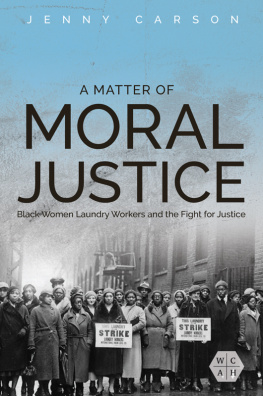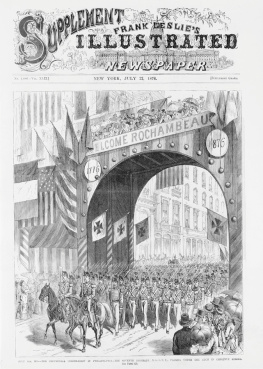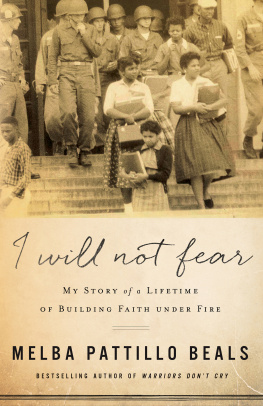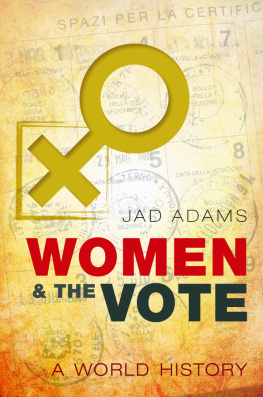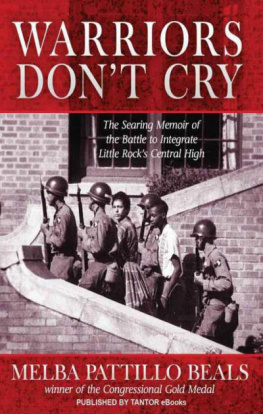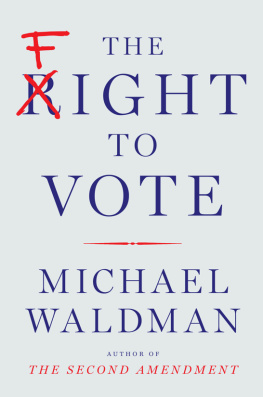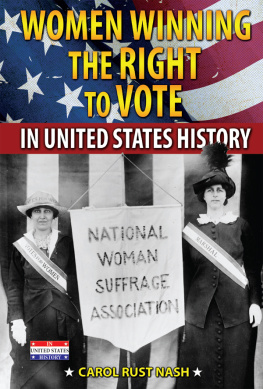
Praise for A Simple Justice
Melanie Goans pioneering, accessible, and engaging account of Kentucky suffrage is meticulously researched. She unearthed a mix of traditional and progressive women whose relentless pursuit of the vote overcame personal and societal obstacles including those exacerbated by racism and discrimination, controversy, and ridicule. Though the Nineteenth Amendment was ratified in 1920, Goans final sentence is a charge still relevant today: to identify injustice, to resist apathy, and to correct it.
Eugenia K. Potter, former executive director of the Kentucky Commission on Women and editor of Kentucky Women: Two Centuries of Indomitable Spirit and Vision
Finally, the little-known true story of how Kentucky women won the vote is written! Not only is it extremely entertaining but it also inspires readers to continue to fight for equality for women today.
Marsha Weinstein, former executive director for the Kentucky Commission on Women
This book is literally years in the making. For a century, the story of womens struggle to earn the franchise in Kentucky has awaited a comprehensive and objective telling. In Melanie Beals Goan, the movement has finally found its chronicler. A Simple Justice is indispensable reading.
Thomas H. Appleton Jr., Foundation Professor of History at Eastern Kentucky University and coeditor of Kentucky Women: Their Lives and Times
A Simple Justice: Kentucky Women Fight for the Vote is a welcome contribution to the literature on the womens suffrage movement in Kentucky and in the United States. Thoroughly researched and very readable, it is a study of the growth of suffrage sentiment and organizations in a state crucial to the development of a southern suffrage movement and the success of the Nineteenth Amendment. Goan includes new material on well-known Kentucky suffragiststhe Big Three comprised of Josephine Henry, Laura Clay, and Madeline McDowell Breckinridgeand on lesser-known women in the suffrage struggle including African American women.
Marjorie J. Spruill, author of Divided We Stand: The Battle Over Womens Rights and Family Values That Polarized American Politics
A Simple Justice
A Simple Justice
Kentucky Women Fight for the Vote
Melanie Beals Goan
Copyright 2020 by The University Press of Kentucky
Scholarly publisher for the Commonwealth,
serving Bellarmine University, Berea College, Centre
College of Kentucky, Eastern Kentucky University,
The Filson Historical Society, Georgetown College,
Kentucky Historical Society, Kentucky State University,
Morehead State University, Murray State University,
Northern Kentucky University, Transylvania University,
University of Kentucky, University of Louisville,
and Western Kentucky University.
All rights reserved.
Editorial and Sales Offices: The University Press of Kentucky 663 South Limestone Street, Lexington, Kentucky 40508-4008
www.kentuckypress.com
Library of Congress Cataloging-in-Publication Data
Names: Goan, Melanie Beals, 1972 author.
Title: A simple justice : Kentucky women fight for the vote / Melanie Beals Goan.
Other titles: Kentucky women fight for the vote
Description: Lexington, Kentucky : University Press of Kentucky, 2020. | Includes index.
Identifiers: LCCN 2020032965 | ISBN 9780813180175 (hardcover) | ISBN 9780813180199 (pdf) | ISBN 9780813180205 (epub)
Subjects: LCSH: Clay, Laura, 1849-1941. | Breckinridge, Madeline McDowell, 1872-1920. | Kentucky Equal Rights Association. | SuffragistsKentuckyHistory20th century. | WomenSuffrageUnited StatesHistory20th century. | SuffrageUnited StatesHistory20th century.
Classification: LCC JK1911.K4 G63 2020 | DDC 324.6/230922769dc23
LC record available at https://lccn.loc.gov/2020032965
This book is printed on acid-free paper meeting
the requirements of the American National Standard
for Permanence in Paper for Printed Library Materials.
Manufactured in the United States of America.
| Member of the Association
of University Presses |
For all the Kentucky women who cast their first ballots in 1920
And for my daughter, Addison, who will become one of the countrys newest voters in 2020
Contents
Introduction
Laura Clay, one of the Souths most famous suffragists, packed a small leather suitcase on August 8, 1920, as she had so many times before. The next morning, she planned to catch a train because important suffrage business called. Unlike many of her travels that had taken her far from home and kept her away for months at a time, this would be a short trip. This trip would also be different in another important regard: it just might be her last.
Laura Clay was headed to Nashville to see whether Tennessee would become the thirty-sixth and final state needed to ratify the Nineteenth Amendment, granting women across the country the right to vote. She had been a suffragist for four decades. She had invested more energy in the work than a full-time career would normally demand. She established the Kentucky Equal Rights Association (KERA) in 1888 and served for a quarter century as its president. Even after she turned the state organization over to her handpicked successor in 1912, she continued to be an abiding presence both behind the scenes and in the public eye. Miss Clay and the Kentucky suffrage movement were synonymous.
Over those long years, her hair had grown gray, she had become stouter, and wrinkles had formed at the corner of her eyes as she waited for the day that she would become a citizen with full rights. She had taken the podium hundreds of times to sway skeptical audiences, including governors and US senators. She had written thousands of letters to make the wheels of change begin to turn. Her name appeared so often in the newspaper that she had long ago stopped clipping all the columns.
She had spent years patiently working for one goal, and finally the end was in sight.
Of course, not everyone wanted to see women enfranchised. Plenty of opponentswomen includedlined up to see the amendment defeated. Clay would join a rancorous mix of Suffs and Antis who were converging on Nashville that weekend, each hoping to convince lawmakers to vote their way. They were locked in a zero-sum game, and both needed a win in Tennessee to continue the fight.
Suffragists were running out of states that could ratify. They needed thirty-six, which meant that only twelve could say no. Southern Antis predicted that their region would stand together united against what they deemed a weapon of northern aggression. The South controlled enough votes to cut the effort off at its knees, and so far, except for Arkansas and Texas, they had managed to hold the line. Success even seemed unlikely in the border states, although Clays own Kentucky had given a big win to suffrage forces back in January. When Delaware failed to ratify in June 1920, the Nineteenth Amendments chances appeared slim indeed.






